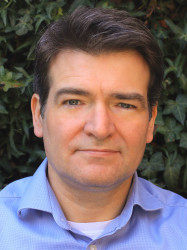BibTex format
@article{McCarthy:2022:10.1021/acssuschemeng.2c04092,
author = {McCarthy, S and Desaunay, O and Lee, Wei Jie A and Hassatzky, M and White, A and Deplano, P and Braddock, D and Serpe, A and Wilton-Ely, J},
doi = {10.1021/acssuschemeng.2c04092},
journal = {ACS Sustainable Chemistry and Engineering},
pages = {15726--15734},
title = {Homogeneous gold catalysis using complexes recovered from waste electronic equipment},
url = {http://dx.doi.org/10.1021/acssuschemeng.2c04092},
volume = {10},
year = {2022}
}

